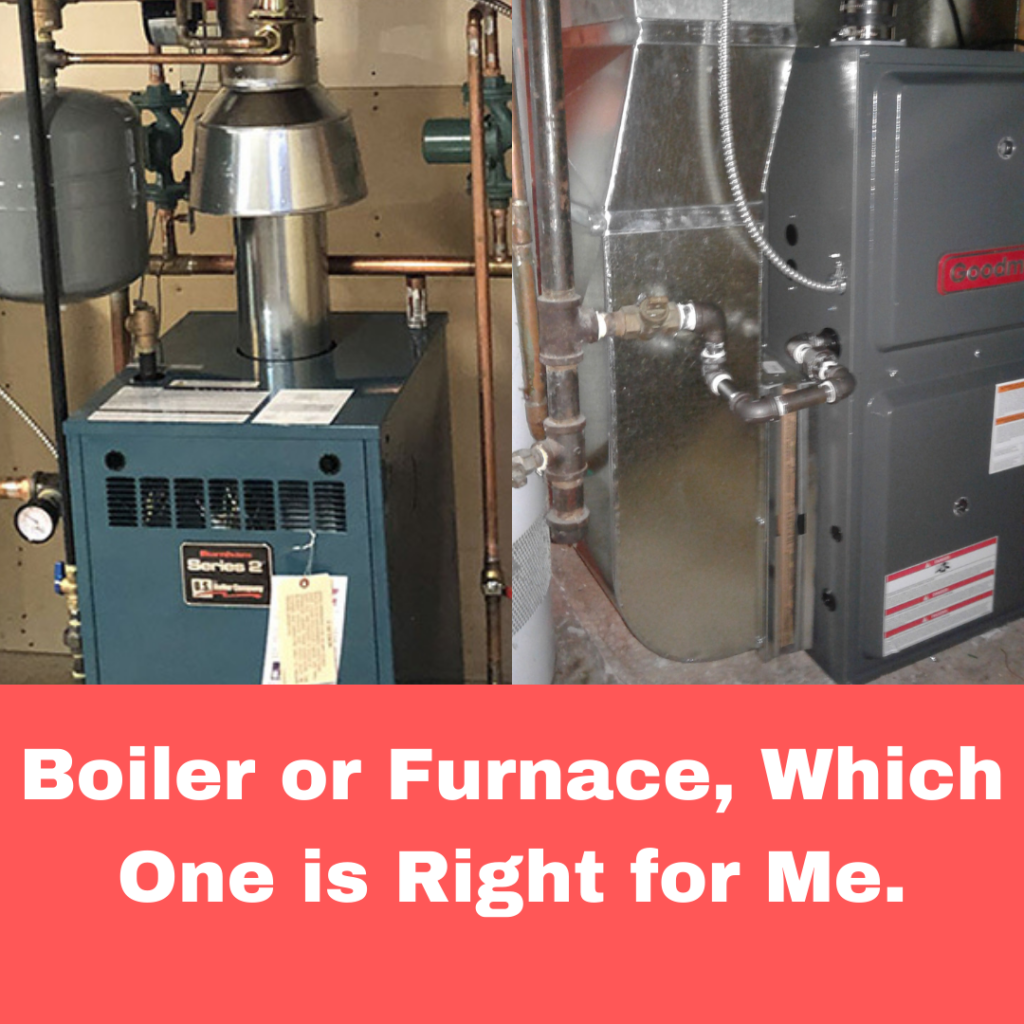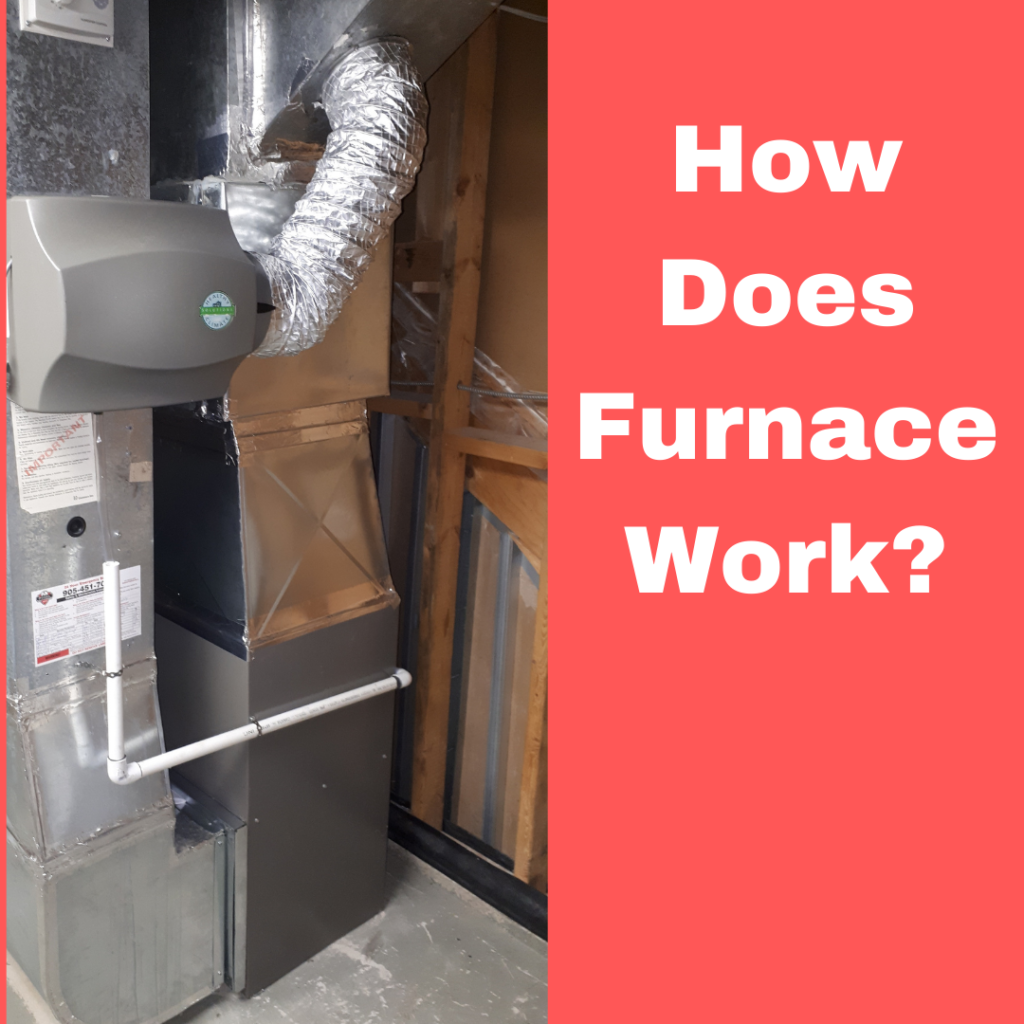Most of us know about what kind of heating system is installed in our basements, whether it Boiler or Furnace. Other than that they ensure that the temperature in our homes is enjoyable when the winter outside and the weather is unpleasant. We use the term “heating” and don’t really care how it exactly works. Let’s talk about the main difference between furnace and boiler.
Understanding the difference between furnace and boiler can help you make better decisions about which one is best for your household energy needs, which in turn can help you better plan your energy costs and save money. Let’s start with the basics of how a furnace vs. boiler works.

How Does Boiler Work?
The boiler does exactly what the name suggests – it boils the water! Water is boiled in a hot water tank and then piped as hot water to radiators or baseboard heaters in rooms throughout the home. Boilers are radiant heat systems, heating pipes, which, in turn, heat the air around them (emit heat).
Most nowadays boilers use natural gas, electricity, or oil, but boilers are available that use alternative fuels, including wood, corn pellets, and other renewable energy sources. In gas boilers, the water in the hot water tank is heated by jets. The electric heating elements in the hot water tank are brought to the set temperature.
Boilers are known for their efficiency they are closed-loop systems. That being said the water which is heating the house is always returned to the hot water tank. The water is already hot, it takes a little heat to boil. Boilers are hot water heating systems, meaning they transfer heat through circulating water.

How Does Furnace Work?
Whereas a boiler heats a home via the circulation of hot water, a furnace heats a home via the circulation of hot air. Air is heated then distributed throughout a house using ductwork and vents. This is called forced-air heating.
Furnaces can be fueled by natural gas or electricity just like boilers, but propane is also common. Oil, geothermal and solar-powered systems are rare, alternative options. Electric furnaces are heated using coils. A current is run through the coils until they are red hot and heat the air around them. Natural gas furnaces burn gas to create hot combustion gas which enters a metal heat exchanger, heating the air around it.
Furnaces can heat a house quickly and to high temperatures. Boilers take longer to warm up but are known to be more efficient and longer-lasting. Furnaces require air filter replacement on a monthly to quarterly basis. They require more frequent repairs than boilers, which can go longer without maintenance. At the same time, boilers need to be bled for excess air periodically, and owning a boiler means risking frozen pipes–something that owning a furnace does not risk. When it comes to air quality, however, boilers take the stage. The ductwork that furnaces require can accumulate dust and dirt that mixes with the air. Boilers do not use ductwork and humidify the air as a byproduct of their hydronic system.
Both boilers and furnaces come with a unique list of pros and cons. Having a better idea of what they do and how they are different from each other can put confidence in decisions about heating and home energy as prices rise. A good rule of thumb is to remember that boilers use hot water, and furnaces use hot air.
Benefits of Using a Boiler
- Water is a much better medium for heat energy than air; it heats up faster and stays warm.
- Add to this the fact that boilers are much more energy efficient than forced air systems.
- Boilers also tend to heat homes much more comfortably than forced air systems.
- The warm air that enters the room rises to the ceiling, where it is called useful for people.
- Boilers are known to be more reliable than forced-air furnaces.
Benefits of Using Furnace
- Flexibility: come in a variety of models and sizes that can handle a variety of fuels.
- Smaller size. The flexibility of a furnace depends in part on how small the units are, even the most powerful ones.
- Easy to Connect: If your home already has air ducts installed, you can easily connect a new furnace without having to install additional pipes, radiators, and baseboard heaters for the boiler.
- Faster heating of the house: because air circulates much faster through the furnace it heats a house in no time.
Choosing the Right Boiler or Furnace for Your Home
We offer different kinds of HVAC equipment from various brands such as Amana, Lennox, Goodman, and many others. With the ability to provide you with a wide selection at a reasonable price, we are sure to find the best option for you, your needs, and your budget plan.
With our many years of experience as a professional HVAC installation company, we will accurately size your HVAC equipment to keep your home comfortable and cozy. Contact us online or call (825)343-6222.
